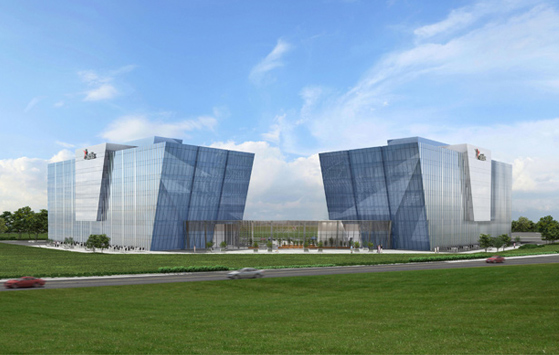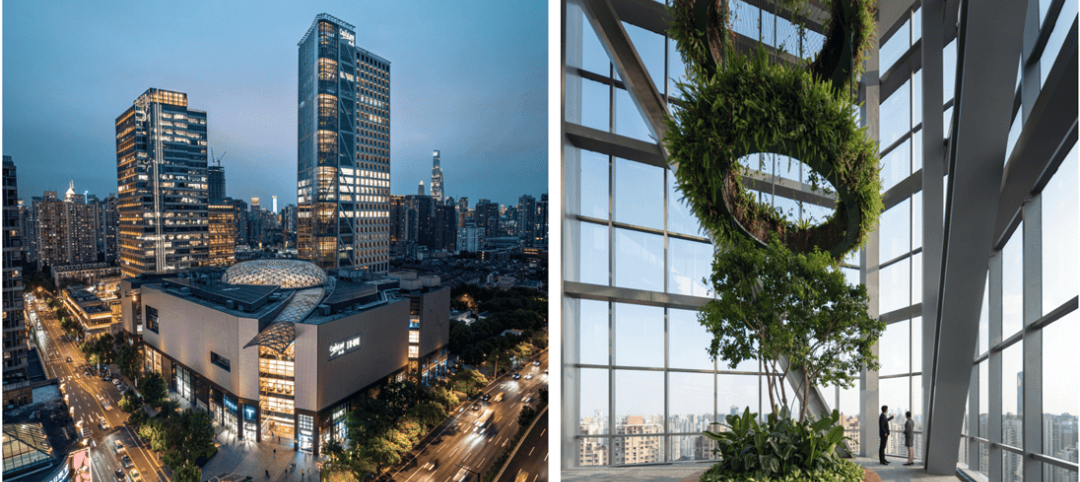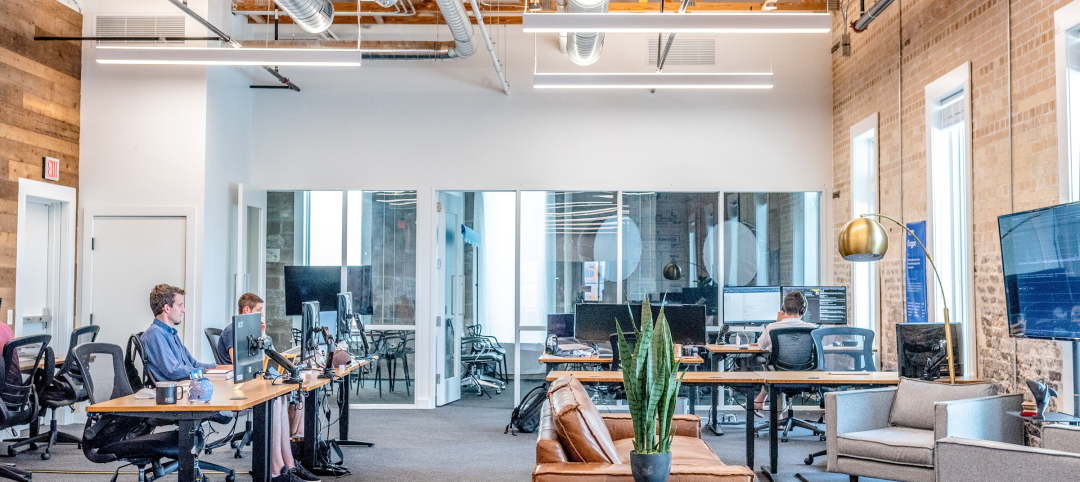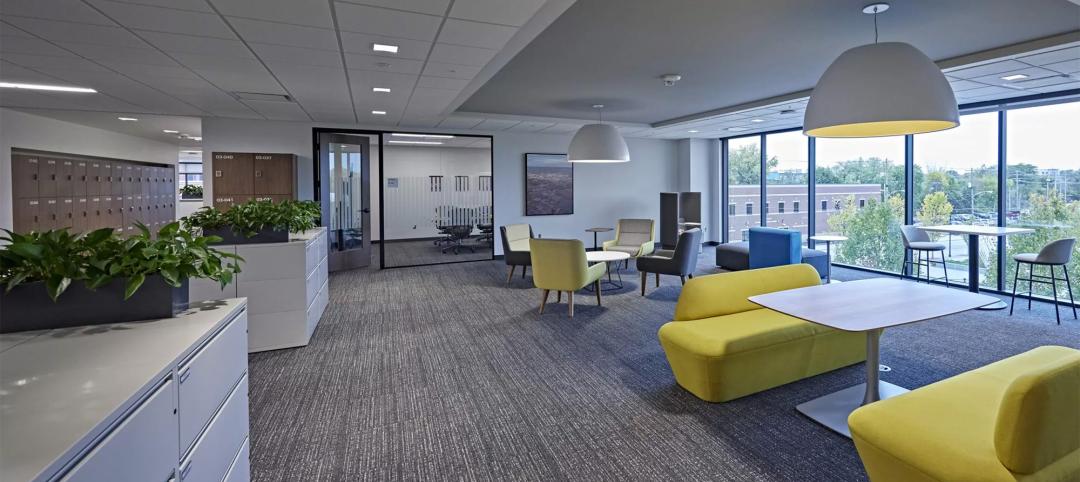Astellas Pharma US Inc. announced that its new headquarters for the Americas, located at the northwest corner of I-294 and Willow Road in Northbrook, Ill., has been awarded LEED Gold certification by the U.S. Green Building Council (USGBC).
"It is an extremely proud day for Astellas in achieving LEED Gold certification at our new headquarters for the Americas, which we've worked toward since we broke ground in 2010. This honor further demonstrates our commitment to the environment, the local community, and as an employer of choice to our employees," said Collette Taylor, Senior Vice President - Human Resources & Corporate Administration of Astellas and headquarters project manager. "With energy costs and carbon emissions on the rise, we're thrilled that we invested in green building at our new facility in Northbrook, Ill. "
The Northbrook complex obtained LEED Gold certification for its environmentally-conscious construction, including:
- Hybrid geothermal field, which uses the earth as a heat source in the winter or heat sink in the summer, to reduce energy costs more than 20 percent;
- Use of more than 77 percent of wood from managed forests certified by the Forest Stewardship Council;
- Use of 35 percent recycled materials, use of 45 percent locally-manufactured materials, and the recycling of more than 85 percent of waste during construction;
- Improved indoor air quality with building flush-out using outdoor air to remove the majority of pollutant emissions;
- Use of high-efficiency heat and air conditioning equipment and plumbing fixtures to reduce water consumption;
- More than 70 percent of the facility's parking under cover to reduce heat island; and
- Landscape irrigation from retained stormwater.
Astellas partnered with MB Real Estate to manage the development of the buildings and site with GlenStar Properties LLC. MB Real Estate contracted the services of HJKessler Associates, a green building and LEED consultant, and worked closely with the USGBC and the U.S. Environmental Protection Agency (EPA) to ensure proper implementation of sustainable building design and practices. The new headquarters was designed by Goettsch Partners (architect of record) and SmithGroupJJR (interior architect), and was built by Power Construction.
Opened in June 2012, the complex accommodates more than 1,000 employees, with ample space to build a future third building to accommodate the company 's projected growth. The complex includes two six-story buildings totaling 425,000 sf and cost approximately $150 million to build. +
Related Stories
High-rise Construction | Jul 29, 2024
Safdie Architects’ Shanghai office tower features glass-enclosed corner garden that ascends the 35-story structure
Safdie Architects has announced the completion of LuOne Mixed-Use Complex—a business, retail, and entertainment development in the Luwan district of Shanghai, China. The mixed-use complex consists of an eight-level retail galleria, which opened in 2018, and a 35-story office tower, which recently reached completion.
Smart Buildings | Jul 25, 2024
A Swiss startup devises an intelligent photovoltaic façade that tracks and moves with the sun
Zurich Soft Robotics says Solskin can reduce building energy consumption by up to 80% while producing up to 40% more electricity than comparable façade systems.
Great Solutions | Jul 23, 2024
41 Great Solutions for architects, engineers, and contractors
AI ChatBots, ambient computing, floating MRIs, low-carbon cement, sunshine on demand, next-generation top-down construction. These and 35 other innovations make up our 2024 Great Solutions Report, which highlights fresh ideas and innovations from leading architecture, engineering, and construction firms.
Office Buildings | Jul 22, 2024
U.S. commercial foreclosures increased 48% in June from last year
The commercial building sector continues to be under financial pressure as foreclosures nationwide increased 48% in June compared to June 2023, according to ATTOM, a real estate data analysis firm.
Sponsored | Office Buildings | Jul 17, 2024
Unlocking Sustainability: Smart Access in the Coworking Space
Smart building technologies, including modern access control systems, are transforming coworking spaces by advancing sustainability initiatives and offering new ways to create and operate efficient working spaces. Learn more about the benefits of eco-friendly practices, from reducing carbon emissions to cutting operating costs, and discover how choosing the right partners can amplify your green efforts.
Adaptive Reuse | Jul 12, 2024
Detroit’s Michigan Central Station, centerpiece of innovation hub, opens
The recently opened Michigan Central Station in Detroit is the centerpiece of a 30-acre technology and cultural hub that will include development of urban transportation solutions. The six-year adaptive reuse project of the 640,000 sf historic station, created by the same architect as New York’s Grand Central Station, is the latest sign of a reinvigorating Detroit.
Government Buildings | Jul 8, 2024
GSA adopts new accessibility guidelines for federal properties
The U.S. General Services Administration (GSA) adopted a new rule with new accessibility guidelines for federal buildings. The rule establishes that pedestrian facilities in the public right-of-way are readily accessible to and usable by people with disabilities.
Office Buildings | Jul 8, 2024
Office vacancy peak of 22% to 28% forecasted for 2026
The work from home trend will continue to put pressure on the office real estate market, with peak vacancy of between 22% and 28% in 2026, according to a forecast by Moody’s.
Office Buildings | Jul 1, 2024
Mastering office layouts: 5 primary models for maximum efficiency and productivity
When laying out an office, there are many factors to consider. It’s important to maximize the space, but it’s equally important to make sure the design allows employees to work efficiently.
Smart Buildings | Jul 1, 2024
GSA to invest $80 million on smart building technologies at federal properties
The U.S. General Services Administration (GSA) will invest $80 million from the Inflation Reduction Act (IRA) into smart building technologies within 560 federal buildings. GSA intends to enhance operations through granular controls, expand available reporting with more advanced metering sources, and optimize the operator experience.

















